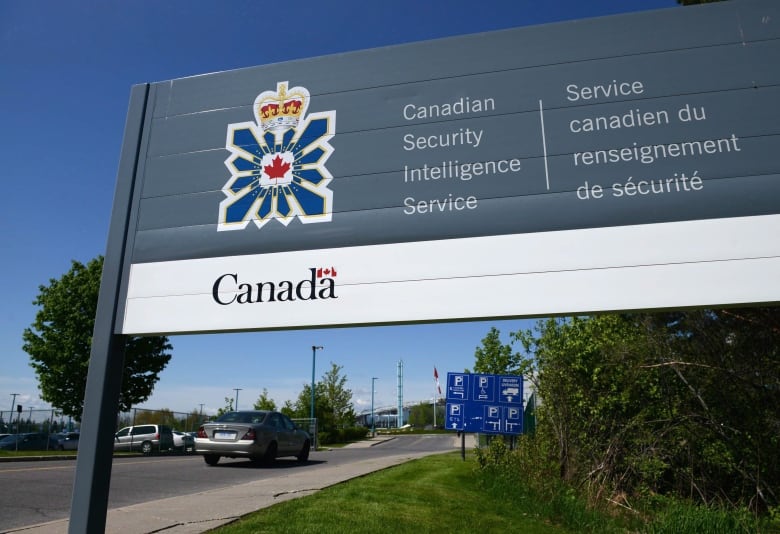News
Omicron variant caseload expected to 'rapidly escalate' in the coming days, Tam says – CBC News
Canada’s chief public health officer said today there is evidence of community spread of the highly transmissible omicron variant and new COVID-19 cases are expected to “rapidly escalate” in the coming days.
Dr. Theresa Tam said there is “great spread potential” with omicron and the situation in Canada is a “few days or maybe a week” behind the U.K. — where British Prime Minister Boris Johnson today said that the country is dealing with a “tidal wave” of new infections, with the caseload doubling every two or three days as the variant takes hold.
“We know how to work together to flatten that curve and we need to do that pretty rapidly, starting now,” Tam said. “As with other waves of the pandemic, rapid action and reducing contact [are] key to preventing that very sharp peak.”
In Ontario, COVID-19 cases have doubled in two weeks’ time, with 1,328 new cases reported today. Some communities — notably Kingston, Ont. — have seen conditions rapidly deteriorate with hundreds of new cases posted over the weekend, pushing case counts to the highest level seen since the onset of the pandemic in March 2020.
‘We are seeing community transmission’
The Ontario COVID-19 science advisory table said today the omicron variant will replace the currently dominant delta variant as the main strain in the province by Christmas — something Tam said she expects to see happen elsewhere in the country by year’s end. Early data suggest omicron is three times more transmissible than delta.
“What we’re seeing in Ontario, I expect to be seen in other areas of the country,” Tam told a press conference. “We are seeing community transmission, possibly in its early stages, but this can rapidly escalate in the days to come.”
While Canada could soon be facing the largest wave of COVID-19 cases ever recorded during this health crisis, one big unknown is just how virulent the omicron variant is compared to past variants like alpha or delta.
WATCH: Tam says there is community transmission of the omicron variant in Canada
Dr. Theresa Tam, Canada’s chief public health officer, says the variant’s spread can escalate rapidly in the days to come. 0:58
The U.K. has reported a stunning 54,661 coronavirus infections in the past 24 hours, but only 10 people with the omicron variant have so far been hospitalized in England.
While researchers scramble to determine the severity of this variant, Tam said provinces must urgently roll out booster shots to protect older and vulnerable Canadians.
‘Waning immunity’
She said there’s evidence of “waning immunity” from COVID-19 infections and vaccines — and quickly administering a third shot to as many people as possible can help blunt the spread.
Tam also said it will take time for the booster shots to kick in — so Canadians should closely follow public health guidelines and “layer on protections” such as medical-grade masks until more people are covered with a third shot.
“We’ve achieved high vaccination coverage compared to other countries and here we are again asking people to roll up their sleeves for those booster shots — especially for the higher risk populations. That’s what we need to focus on,” Tam said.
“But you need both vaccines and reduced contact rates right to dampen the effect of this virus,” she said.
Tam said that last recommendation — staying away from other people — will help protect Canada’s hospitals from being inundated with patients.
“I think we’ve learned over time, if we don’t act fast then you begin to lose the ability to manage things,” she said.
Tam’s omicron warnings come on the same day she released her annual report. In that document, Tam says the public health system is “stretched dangerously thin” after two years of the COVID-19 crisis and a parallel opioid epidemic.
To address some of the system’s shortcomings, Tam said governments have to earmark more money for public health to bring an end to what she calls the “boom and bust” cycle — a funding pattern where money flows during a time of crisis only to be clawed back when the situation stabilizes. Tam said money should be dedicated to recruiting and retaining health care workers, who have faced challenging working conditions during this pandemic.
Tam’s annual report also lays bare just how damaging the COVID-19 crisis has been for other areas of public health. The pandemic has wreaked havoc on the lives of Canadians suffering from mental illness, opioid addiction and other substance abuse problems.
Tam’s report says there were 7,150 more deaths than expected in people under the age of 65 between March 2020 and May 2021. COVID-19-related deaths accounted for 1,600 of those deaths, while the worsening opioid overdose crisis also likely caused a significant number of these excess deaths, Tam said.
Social isolation, a more toxic drug supply and physical distancing measures at safe-consumption sites, among other factors, have made the opioid crisis more deadly, the report found. The number of opioid-related deaths in 2020 (6,214) far exceeded the number of deaths in 2018 (4,389), the previous peak of the crisis.
Canada is also grappling with mental health concerns, with 42 per cent of people reporting their perceived mental health is “somewhat worse” or “much worse” than it was before the pandemic, according to the Canada Community Health Survey.
Although individuals aged 12 to 17 years were among the age groups least likely to report feelings of worsening mental health, the share of this demographic reporting perceptions of poorer mental health has doubled since September 2020.
Kids Help Phone, an e-mental health service offering free confidential support to young Canadians, reported that the number of calls, texts and clicks on their online resources more than doubled in 2020 over 2019.
And because many jurisdictions have postponed elective and other surgeries, Tam’s report suggests there will be a “future surge of cancer cases” once surgeries resume after COVID-19-related interruptions.
News
CTV National News: Tax hike coming for Canadians? – CTV News
[unable to retrieve full-text content]
CTV National News: Tax hike coming for Canadians? CTV News





Source link
News
2024 federal budget's key takeaways: Housing and carbon rebates, students and sin taxes – CBC News
Finance Minister Chrystia Freeland today tabled a 400-page-plus budget her government is pitching as a balm for anxious millennials and Generation Z.
The budget proposes $52.9 billion in new spending over five years, including $8.5 billion in new spending for housing. To offset some of that new spending, Ottawa is pitching policy changes to bring in new revenue.
Here are some of the notable funding initiatives and legislative commitments in budget 2024.
Ottawa unloading unused offices to meet housing targets
One of the biggest pillars of the budget is its housing commitments. Before releasing the budget, the government laid out what it’s calling Canada’s Housing Plan — a pledge to “unlock” nearly 3.9 million homes by 2031.


The government says two million of those would be net new homes and it believes it can contribute to more than half of them.
It plans to do that by:
- Converting underused federal offices into homes. The budget promises $1.1 billion over ten years to transform 50 per cent of the federal office portfolio into housing.
- Building homes on Canada Post properties. The government says the 1,700-plus Canada Post offices across the country can be used to build new homes while maintaining postal services. The federal government says it’s assessing six Canada Post properties in Quebec, Alberta and British Columbia for development potential “as a start.”
- Rethinking National Defence properties. The government is promising to look at redeveloping properties and buildings on National Defence lands for military and civilian use.
- Building apartments. Ottawa is pledging a $15 billion top-up to the Apartment Construction Loan Program, which says it will build 30,000 new homes across Canada.
Taxing vacant land?
As part of its push on housing, the federal government also says it’s looking at vacant land that could be used to build homes.
It’s not yet committing to new measures but the budget says the government will consider introducing a new tax on residentially zoned vacant land.
The government said it plans to launch consultations on the measure later this year.
Help for students
There’s also something in the budget for students hunting for housing.


The government says it will update the formula used by the Canada Student Financial Assistance Program to calculate housing costs when determining financial need, to better reflect the cost of housing in the current climate.
The government estimates this could deliver more aid for rent to approximately 79,000 students each year, at an estimated cost of $154.6 million over five years.
The government is also promising to extend increased student grants and interest-free loans, at an estimated total cost of $1.1 billion this year.
Increase in taxes on capital gains
To help cover some of its multi-billion dollar commitments, the government is proposing a tax hike on capital gains — the profit individuals make when assets like stocks and second properties are sold.
The government is proposing an increase in the taxable portion of capital gains, up from the current 50 per cent to two thirds for annual capital gains over $250,000.
Finance Minister and Deputy Prime Minister Chrystia Freeland said this year’s federal budget will pave the way for Canada to build more homes at a pace not seen since the Second World War. The new investment and changes to funding models will also cut through red tape and break down zoning barriers for people who want to build homes faster, she said
Freeland said the change would impact the wealthiest 0.1 per cent.
There’s still some protection for small businesses. There’s been a lifetime capital gains exemption which allows Canadians to exempt up to $1,016,836 in capital gains tax-free on the sale of small business shares and farming and fishing property. This June the tax-free limit will be increased to $1.25 million and will continue to be indexed to inflation thereafter, according to the budget.
The federal government estimates this could bring in more than $19 billion over five years, although some analysts are not convinced.
Disability benefit amounts to $200 per month
Parliament last year passed the Canada Disability Benefit Act, which promised to send a direct benefit to low-income, working-age people with disabilities.
Budget 2024 proposes funding of $6.1 billion over six years, beginning this fiscal year, and $1.4 billion per year ongoing, for a new Canada Disability Benefit.
Advocates had been hoping for something along the lines of $1,000 per month per person. They’ll be disappointed.
According to the budget document, the maximum benefit will amount to $2,400 per year for low income individuals with disabilities between the ages of 18 and 64 — about $200 a month.
The government said it plans for the Canada Disability Benefit Act to come into force in June 2024 and for payments to start in July 2025.
Carbon rebate for small businesses coming
The federal government has heard an earful from small business advocates who accuse it of reneging on a promise to return a portion of carbon pricing revenues to small businesses to mitigate the tax’s economic costs.
The budget proposes to return fuel charge proceeds from 2019-20 through 2023-24 to an estimated 600,000 businesses with 499 or fewer employees through a new refundable tax credit.
The government said this would deliver $2.5 billion directly to Canada’s small- and medium-sized businesses.
Darts and vape pods will cost more
Pitching it as a measure to cut the number of people smoking and vaping, the Liberals are promising to raise revenues on tobacco and smoking products.
- Just Asking wants to know: What questions do you have about quitting smoking or vaping? Do you think sin taxes will encourage smoking cessation? Fill out the details on this form and send us your questions ahead of our show on April 20.
Starting Wednesday, the total tobacco excise duty will be $5.49 per carton. The government estimates this could increase federal revenue by $1.36 billion over five years starting in 2024-25.


The budget also proposes to increase the vaping excise duty rates by 12 per cent effective July 1. That means an increase of 12 to 24 cents per pod, depending on where you live.
Ottawa hopes this increase in sin taxes will bring in $310 million over five years, starting in 2024-25.
More money for CBC
Heritage Minister Pascale St-Onge has mused about redefining the role of the public broadcaster before the next federal election. But before that happens, CBC/Radio-Canada is getting a top-up this year.


The budget promises $42 million more in 2024-25 for CBC/Radio-Canada for “news and entertainment programming.” CBC/Radio-Canada received about $1.3 billion in total federal funding last year.
The government says it’s doing this to ensure that Canadians across the country, including rural, remote, Indigenous and minority language communities, have access to independent journalism and entertainment.
Last year, the CBC announced a financial shortfall, cut 141 employees and eliminated 205 vacant positions. In a statement issued Tuesday, CBC spokesperson Leon Mar said the new funding means the corporation can balance its budget “without significant additional reductions this year.”
Boost for Canada’s spy agency


As the government takes heat over how it has handled the threat of foreign election interference, it’s promising more money to bolster its spy service.
The Canadian Security Intelligence Service is in line to receive $655.7 million over eight years, starting this fiscal year, to enhance its intelligence capabilities and its presence in Toronto.
The budget also promises to guarantee up to $5 billion in loans for Indigenous communities to participate in natural resource development and energy projects in their territories.
These loans would be provided by financial institutions or other lenders and guaranteed by the federal government, meaning Indigenous borrowers who opt in could benefit from lower interest rates, the budget says.
News
Canada's 2024 budget announces 'halal mortgages'. Here's what to know – National Post
Article content
The 2024 federal budget says the Liberal government plans to introduce “halal mortgages” as a way to increase access to home ownership.
Here’s what “halal mortgage” means and what that effort might look like:
Article content
What does Canada’s 2024 budget say?
The plan mentions the creation of “alternative financing products, including halal mortgages” as a means to “enable Muslim Canadians, and other diverse communities, to further participate in the housing market.”
Article content
Ottawa is “exploring” measures that could change “the tax treatment of these products” or provide a “new regulatory sandbox for financial service providers,” it says.
Recommended from Editorial
The government began consultations in March 2024 with financial services providers and “diverse communities” as it sets out to expand mortgage policies to include alternative financing, the budget adds. The Liberal government says it will make announcement detailing what such a plan would look like this the fall.
Why are regular mortgages not considered halal?
Islamic law, or Sharia, prohibits Muslims from charging or receiving interest because they are seen as exploitative and immoral. Instead of giving loans, Islamic banks use different payment structures to avoid charging interest.
What are halal mortgages?
Sharia-compliant mortgages include payment structures that take interest out of the equation. There are three common types of halal mortgages: ijara, Musharaka, and Murabaha.
Article content
Ijara is a rent-to-own model in which a bank buys the asset and leases it back out to the customer over a set period. The payments go toward both the capital and provide a profit for the financial institution.
Musharaka, a form of partnership with the financier, involves both parties owning the property until the equity is gradually transferred and the partnership dissolves.
Murabaha is a credit system in which the ownership is immediately sold to the customer, with profits included in the final offer. The buyer’s credit history, deposit and terms of the agreement are factored in.
Because these structures are considered more risky, they are often more expensive than a traditional interest loan. Canada’s big banks do not currently provide halal mortgages, which the Liberal government hopes to change. According to Canadian Press, lack of halal financial options have left many Muslims waiting for smaller firms to allow them to make investments and buy homes.
Our website is the place for the latest breaking news, exclusive scoops, longreads and provocative commentary. Please bookmark nationalpost.com and sign up for our daily newsletter, Posted, here.
Share this article in your social network
-



 Tech24 hours ago
Tech24 hours agoiPhone 15 Pro Desperado Mafia model launched at over ₹6.5 lakh- All details about this luxury iPhone from Caviar – HT Tech
-



 Sports23 hours ago
Sports23 hours agoLululemon unveils Canada's official Olympic kit for the Paris games – National Post
-
News18 hours ago
Loblaws Canada groceries: Shoppers slam store for green onions with roots chopped off — 'I wouldn't buy those' – Yahoo News Canada
-
News21 hours ago
Toronto airport gold heist: Police announce nine arrests – CP24
-
Investment17 hours ago
Saudi Arabia Highlights Investment Initiatives in Tourism at International Hospitality Investment Forum
-
Business17 hours ago
Rupture on TC Energy's NGTL gas pipeline sparks wildfire in Alberta – The Globe and Mail
-
Art18 hours ago
Squatters at Gordon Ramsay's Pub Have 'Left the Building' After Turning It Into an Art Café – PEOPLE
-



 Tech10 hours ago
Tech10 hours agoCytiva Showcases Single-Use Mixing System at INTERPHEX 2024 – BioPharm International








